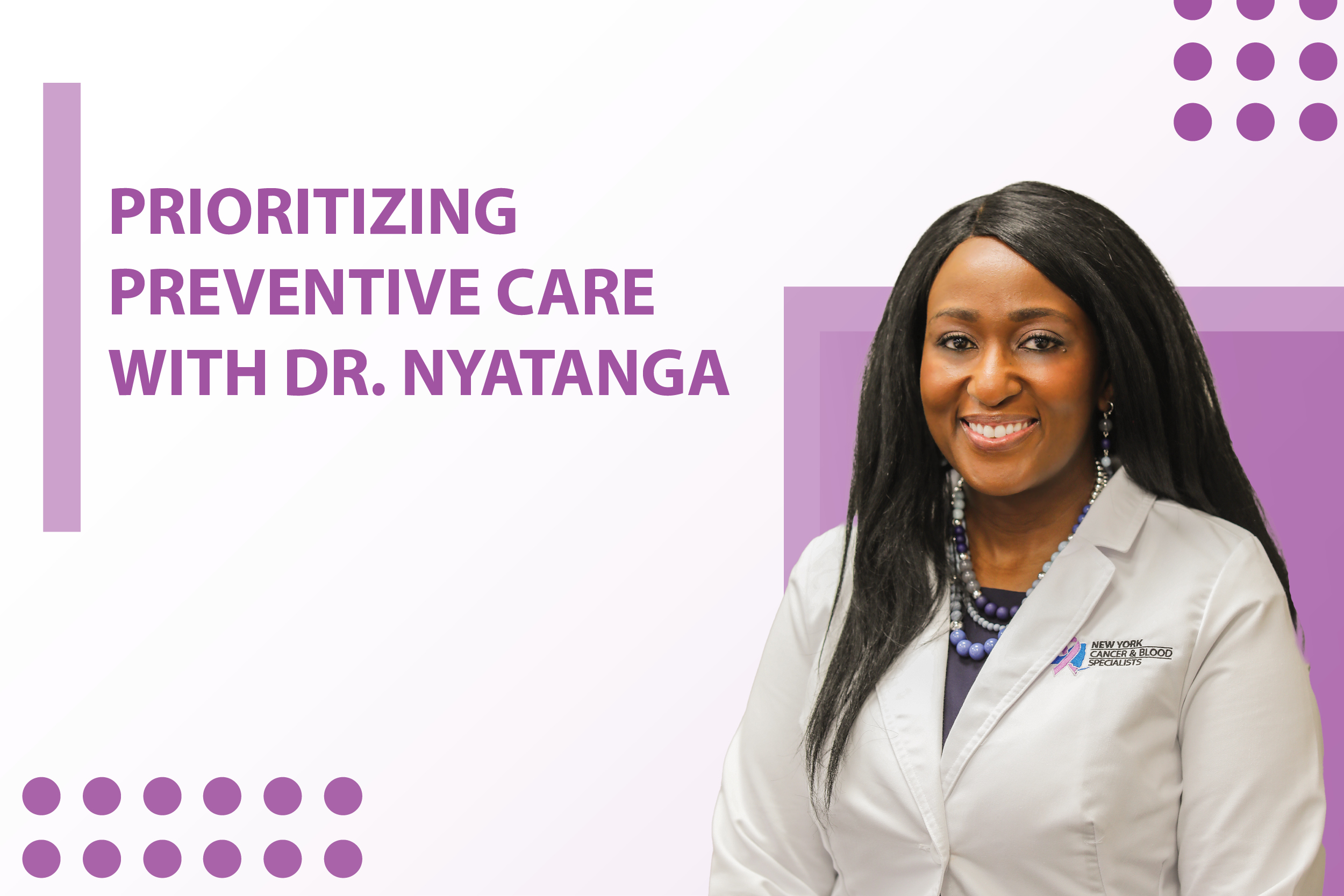Prioritizing Preventive Care
Although health is a priority for many in the new year, preventive care is an aspect of improving and maintaining health that often gets neglected. Getting routine preventive care can help you live a longer, healthier life.
At New York Cancer & Blood Specialists (NYCBS), Hematologist-Oncologist Dr. Nolyn Nyatanga skillfully merges modern medicine with preventive healthcare, steering patients toward holistic wellness. During her teenage years, Dr. Nyatanga cared for sick children in a Zimbabwean orphanage, witnessing the impact of preventable diseases on vulnerable populations. This experience not only instilled in her a deep appreciation for preventive healthcare but also emphasized the critical role of modern medicine in treating and curing diseases.
Routine pap smears and annual mammograms in women, as well as, colonoscopies, prostate and lung cancer screening if indicated, are integral components of preventive care. “Data has shown over the years that early detection of cancer translates to a decrease in morbidity and mortality long term,” Dr. Nyatanga says.
The World Health Organization suggests that approximately 30-50% of all cancers can be prevented. Engaging in lifestyle modifications, such as adopting a healthy diet, incorporating regular exercise, quitting smoking, and moderating alcohol consumption, can play a crucial role in enhancing your overall well-being and leading to a more fulfilling life. Striving for at least 150 minutes of moderate exercise per week is recommended, along with maintaining alcohol intake below one drink per day for women and less than two drinks daily for men.
"As part of preventative care for my patients, I prioritize optimizing vitamin D levels. Low vitamin D levels have been linked to many health conditions and cancers, including but not limited to breast cancer, prostate cancer, colon cancer, and multiple myeloma. The American Endocrine Society recommends maintaining Vitamin D levels between 40-60 ng/mL, so I strive to keep my patients around 50 ng/mL," Dr. Nyatanga says.
“Open conversations about preventive care and tailored screenings are important,” Dr. Nyatanga says. “Consultation with your doctor ensures you receive the specific care you need."
To make an appointment with Dr. Nyatanga, call 718-732-4049.


